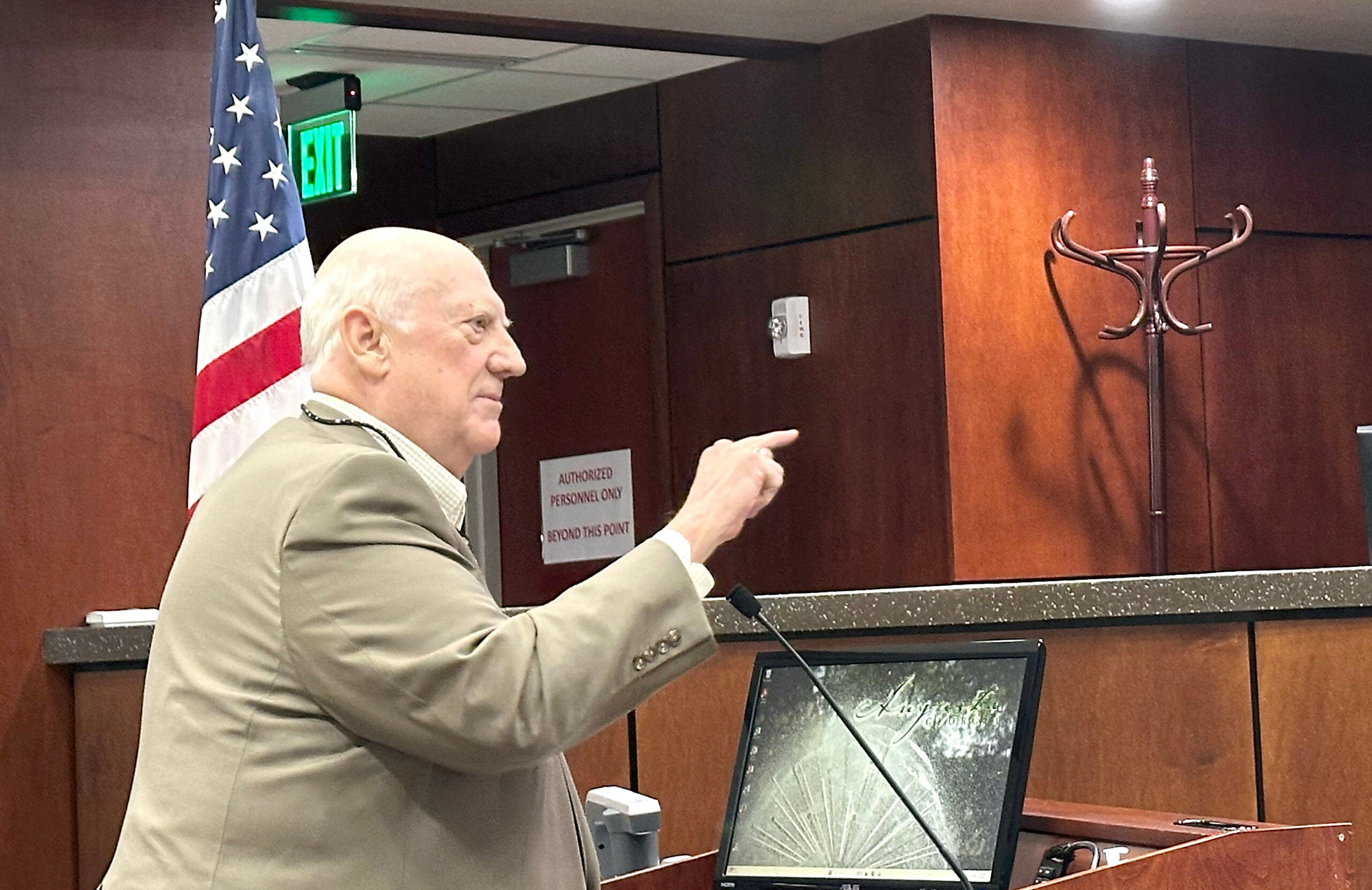Changes may be in store for Augusta’s Historic Preservation Commission.
The appointed board made headlines earlier this year when it cited the owner of a historic church building for failing to provide adequate maintenance and repair. Now, Augusta commissioners are considering making changes to the board and its enabling ordinance, and they held a Wednesday workshop on the topic.
The January episode revived criticism of the board as being too powerful, seemingly able to block a homeowner from installing a roof to keep rain out of a house. The commission also called for a review of the ordinance last year.
Direct appeal to Augusta Commission
At the workshop, called by Commissioner Catherine Smith Rice, one of the more-discussed suggestions was to give property owners the ability to directly appeal a ruling to the Augusta Commission.
The existing process requires they go through arbitration first.
“It’s important that we pay homage” to Georgia’s second-oldest city, Mayor Garnett Johnson said at the workshop. But having a direct appeal to the commission is especially important for homeowners, he said.
When constituents have issues, and arbitration is too pricey, “I, for one, would like for those issues to go before the governing body,” he said.
MORE: Megha Ganne sits on top of the leaderboard after day 1 of the Augusta National Women’s Amateur
What the board does
Current Historic Preservation Commission chairman and longtime member Dave Barbee said the board’s charge is simple, yet big.
A property owner files for a certificate of appropriateness to make an architectural change within one of Augusta’s designated historic districts – Summerville, downtown and Olde Town. The board applies the preservation ordinance guidelines to the changes to determine if they comply.
“I would say 90% of the COAs that have been brought before us we have approved,” Barbee said.
The board’s role in preserving historic structures also helps preserve the historic districts and designations that make an owner eligible for lucrative state, federal and even local tax breaks, he said.
The board’s January decision to cite a property owner for upkeep issues was a first.
MORE: What to look forward to with the 2025 Masters
Historic Augusta
The local nonprofit Historic Augusta serves in an advisory capacity to the preservation commission. Erick Montgomery, the group’s executive director for over 35 years, said it has a team of four architects who, with himself, render a professional opinion on every application to the board.
The organization also helps property owners with securing the tax breaks for certified rehabilitations. In Georgia, an owner can qualify for up to a 25% state income tax credit as well as a 10-year freeze on property values, while the federal tax credit adds another 20% investment tax credit, he said.
In years gone by, Montgomery said Augusta owners could appeal directly to the commission, but officials eventually determined it made the decisions “political.”
Intimidation, personalities
The three city commissioners who attended the workshop – Rice, Tina Slendak and Francine Scott – each thanked the board for its work.
Rice said constituents sometimes feel intimidated bringing their requests to the board, while others felt like they were being criminally prosecuted.
“We just want to make sure that we can make it friendly for everybody,” she said.
Slendak, who worked two decades at a local architecture firm where she filled out applications to the preservation commission, said it wasn’t so much the ordinance that needed work.
“We’re here now just because of some strong personalities,” she said. They include those of applicants as well as board members, she said.
Barbee said one area the ordinance is lacking is “we have no way of enforcing it.” Fines could be effective, but the board must rely on city staff to levy and collect them, he said.
Small parking lots, training
Carla Delaney, Augusta’s Planning and Development director, said big questions surrounding Augusta’s ordinance include that of a direct appeal and the requirement that demolition permits include a plan for what will replace the structure.
Not requiring a future plan could leave downtown dotted with small parking lots, she said.
The 12-member preservation board, which has vacancies for districts 4, 8 and 10, is unpaid and has rarely, if ever, participated in training, despite a need, Delaney said.
Those present Wednesday agreed board training should be a priority.
Other cities
Delaney presented a comparison of Augusta with other Georgia cities’ historic preservation commissions.
The bodies, which ranged in size from 5-11 members, had varying methods of member appointment, term lengths and experience requirements.
The cities also varied in what was permitted to be approved by staff versus what had to go before the board. For instance, staff approvals were not allowed for changes made within Athens’ downtown district.
The cities varied in their appeals processes. Applicants rejected by Athens’ seven-member board appeal to the Athens-Clarke County Commission. Applicants in Columbus appeal to the board of zoning appeals. Macon appeals go through the court system.











